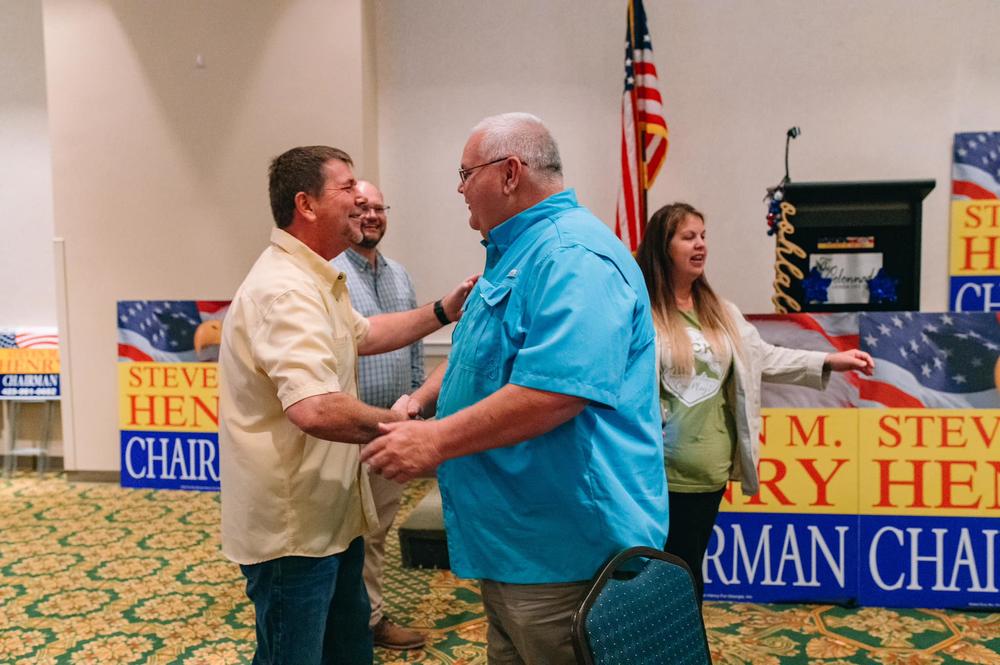
Caption
Steven Henry (left) is one of four candidates that the Catoosa County Republican Party says isn't Republican enough to be on Republican ballots.
Credit: Steven Henry via Facebook

Steven Henry (left) is one of four candidates that the Catoosa County Republican Party says isn't Republican enough to be on Republican ballots.
A federal judge has blocked an attempt by the Republican Party in North Georgia's Catoosa County to remove four candidates from the ballot in the May 21st primary.
But the order yesterday by U.S. District Judge Billy Ray doesn't resolve an underlying lawsuit over who is "Republican enough" to appear on the ballot.
The county party, represented by attorney Alex Johnson of the conservative Republican Assembly movement, says the First Amendment's right to assemble protects the GOP from being harmed by "non-Republicans" who run in the party's primary.
"The actions of these candidates is what determines whether or not they actually are Republican or not," Johnson said. "If the candidates are going out and supporting development that the community doesn't want, if they're trying to restrict property rights, if they're endorsing Democrats — I mean, if they're doing those things, they've chosen not to be Republican."
He wants the party to be able to decide who gets to be on Republican ballots and cites a Georgia case involving Republican David Duke, among other legal arguments.
Local businessman and former county chairman Steven Henry is one of the four commission candidates the party wants to disqualify.
He defends his Republican credentials and likens the 16 officers of the Catoosa County Republican Party to a "1920's mob."
He calls the local party's candidate-vetting rule a "terrible idea."
"Now you've got 16 people controlling the government because if they vet you, you better make them happy or they're not going to pick you again," Henry said. "I say, it's the choice of the voters to decide who's Republican or not."
The case has potential statewide implications and is part of a larger movement by the National Federation of Republican Assemblies, among other conservative groups, to have more sway over the party.
In his order, Ray wrote that the law doesn't allow him to order a ballot change so close to an election. Early voting in the primary begins next week.
He also wrote that the plaintiffs were unlikely to succeed on the merits of their case.
So the election will go forward with the four candidates — Henry, Larry Black, Jeffrey Long and Vanita Hullander — on the Republican ballot.
But the underlying case will proceed, as will a separate lawsuit in state court over the same issue.